انتقل إلى وضع عدم الاتصال باستخدام تطبيق Player FM !
Learning and Memory Trends: My Predictions For 2025
Manage episode 451841222 series 3235856
 2024 is winding down as a wild year for learning and memory trends. Largely because it’s been marked by record levels of disruption from Artificial Intelligence technologies.
2024 is winding down as a wild year for learning and memory trends. Largely because it’s been marked by record levels of disruption from Artificial Intelligence technologies.
But have they really changed that much for learners in any practical sense?
And are they helping human memory?
If so, who is helped?
Who gets left behind?
I’m in touch regularly with learners who experiment wildly with learning technologies and report substantial results.
But I also hear from people who just wind up overwhelmed.
Then there are those who are innovating with new technologies, hoping to help more people by meeting them where they’re at.
Which is all too often with their attention buried in devices.
That’s why in this post I’m sharing my reflections from the past year and making a few predictions about what’s likely to happen in 2025.
Buckle up, learning fanatic. This is going to be an intense ride!
Learning And Memory Trends: My Predictions For 2025
The landscape of learning and memory seems to be developing rapidly.
However, memory science and neuroscience at large shows us that the human brain doesn’t evolve quite so fast.
But the fact that evolution moves slowly over generations, and that we might eventually adapt to our influx of technologies, doesn’t mean that our brains aren’t being rewired.
2024 saw the release of Jonathan Haidt’s The Anxious Generation. His argument is that we are rewiring the brain by exposing ourselves to too much online technology.
His prediction based on existing data is that if we don’t make some serious changes, mental illness is going to spike. Especially amongst young people.
Whereas Haidt focuses on young people overall, Richard Reeves wrote specifically about the effect on males in Of Boys and Men.
Although I’m not quite as anxious as these two well-acknowledged thinkers, I mention them upfront because their themes are important.
But by the end, you’ll find a bold prediction from me about how the current alarming trends might converge in ways that not only revolutionize how we learn.
They could well fundamentally alter how we experience consciousness itself. For the better.

One: Poor Sleep Will Continue to Erode Memory & Critical Thinking
We’ve known for a long time just how important sleep is for remembering information optimally.
A major 2024 study published in Science only underscores the facts.
The terms they use involve how sleep helps not only form memories. It also establishes and maintains “network stability” based on what another study calls “neuronal assemblies.”
Although the human brain is not a computer, there is a very real sense that the information we share flows between us like software code.
Critically, our lack of sleep ruins more than recall.
If we’re not well-rested, critical thinking often goes out the window. Part of the problem has to do with the maiming of working memory. You need to be able to juggle multiple details in real time when making decisions.
It’s also easier to be influenced by emotions instead of reason when you’re tired.
As these researchers have discovered, emotions and memory are tightly connected. So even emotional decisions that could be good if you were making them while well-rested stand a chance of being particularly poor when made while tired.
Worse, poorly rested people struggle to remember the details of how they arrived at their bad decisions. Even if they normally have “random access memory” to the very best critical thinking strategies.
My suggestion:
Instead of falling for the apps and add-ons claiming that blue light or some other hack make it okay to use devices while in bed, try this in 2025 instead.
Set a computer curfew and stick with it. Give yourself 2-3 hours of “digital fasting” before bedtime.
Both your memory and your thinking skills will thank you for it.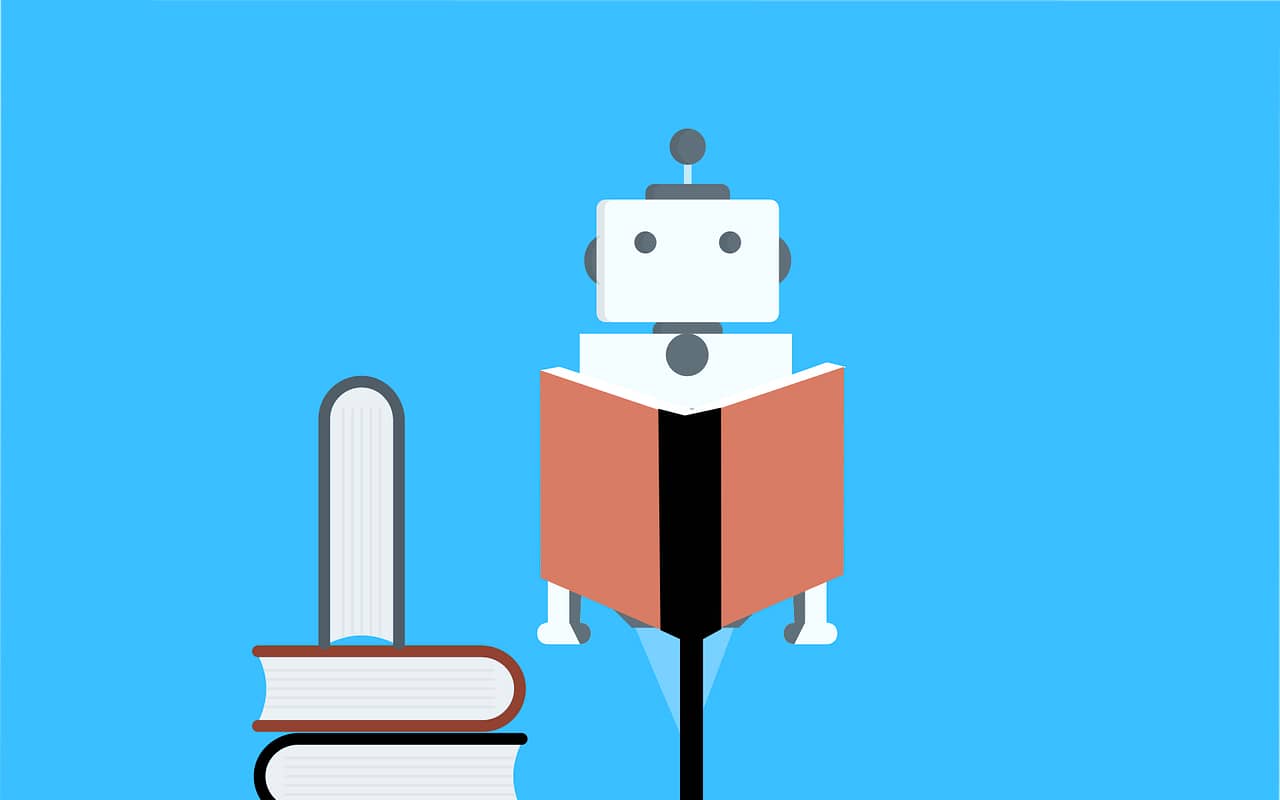
Two: Robot Created Learning Products Will Flood the Market
I’m not going to boost any particular company by citing specific examples.
But because I work online, advertisers target me with “automatic course creators” and “instant Ebook” artificial intelligence apps.
They tell me I can produce entire books in minutes and script flagship courses ready to be recorded with my video camera within an hour or less.
Used well, there is no doubt in my mind that experienced and ethical writers and course creators will become better than ever before.
Wordy people (like me) will be able to get help with how they describe things without having to pay expensive human editors. (Editors who often have no expertise in the topic area, so wind up cutting out crucial details students need to have in their deliberate practice of many skills).
But all kinds of people who really only care about identifying markets and selling products for cash and prizes will flood the market at a much faster pace. Because they have no scruples, they won’t worry about quality or student outcomes.
Fortunately, there are ancient principles that still work great: As I’ve been advising people for years through my Memory Training Consumer Awareness Guide, carpe diem, but always caveat emptor.
In case you don’t know any Latin, those terms mean “seize the day, but buyer beware.”
This leads us to my next prediction.
Three: Online Courses Will Continue to Help Learners Confuse Activity with Accomplishment
When it comes to learning and memory, there’s a strange fascination with “gamification.”
People seem to feel like they’ve learned more when animations explode on the screen. The sound of bells appeals to people when they complete a lesson.
Others like to collect points, coins or badges.
I get it. I don’t like it and find it thoroughly annoying – but I get it.
The problem is that I don’t find the evidence for the gamification of education compelling.
Although this systematic review of the literature finds cause for optimism, it also recognizes serious gaps in the literature.
I’d suggest that there are also gaps in how a lot of the scientific studies are conducted as well.
For example, this study of gamification in science education was based on a questionnaire.
The justification for making claims based on self-reporting is lacking. Nature has reported on how self-reporting like this winds up problematized by memory biases.
I don’t want to dwell on the negative, but validity problems plague so many memory statistics and studies.
My sad prediction is that people will continue “gamifying” online learning platforms with little or no evidence that any of the activities they’re injecting into the courses lead to accomplishment.
Feeling like you’ve had a great experience is great. But it doesn’t mean you’ve developed a skill in any meaningful way.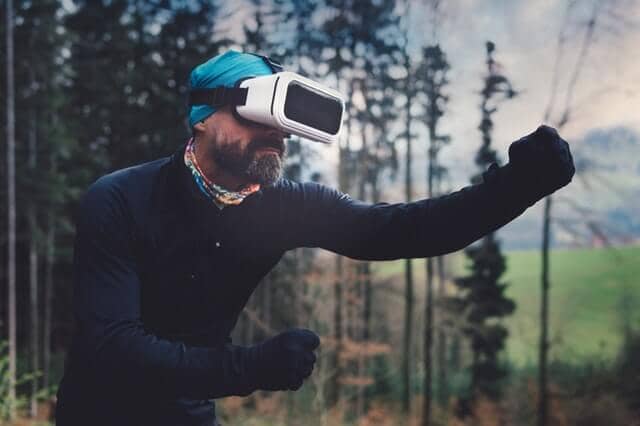
Four: Augmented Reality & Virtual Reality Will Remain Fringe Interests
I could be way off the mark here.
But it seems to me that the vast majority of humans want to be unencumbered by helmets and glasses.
For one thing, it’s hard to maintain situational awareness when you’re wearing a device – especially one that disrupts your attention with visual and audio notifications.
Perhaps such devices will increase your ability to monitor threats in the environment. But I think that’s misguided.
What if a connection goes bad? Or a bad guy has a scrambling device? Wouldn’t you rather that you were fully aware and ready to defend yourself instead?
Even in the relatively safe environment of one’s home, I predict that the vast majority of people will want to be instinctually free of devices that isolate or invade their ability to track environments in extreme ways.
Part of my thinking here is actually influenced by Jaron Lanier, a VR pioneer. He raises issues in Dawn of the New Everything that relate to situational awareness.
There are also uncanny valley effects that could pose challenges to our ability to learn in simulated environments.
Finally, there’s a memory champion who released a Memory Palace app. Strangely, his team wanted me to promote the product as an affiliate. But the creator would not appear on the Magnetic Memory Method Podcast to discuss it.
I can’t be sure, but it feels strongly to me that there was no desire to face the hard questions I have to ask about the efficacy of such an app. My criticism of digital amnesia and my traditional views on what constitutes a Memory Palace are well-known. I can’t think of any other reason why the interview never came about.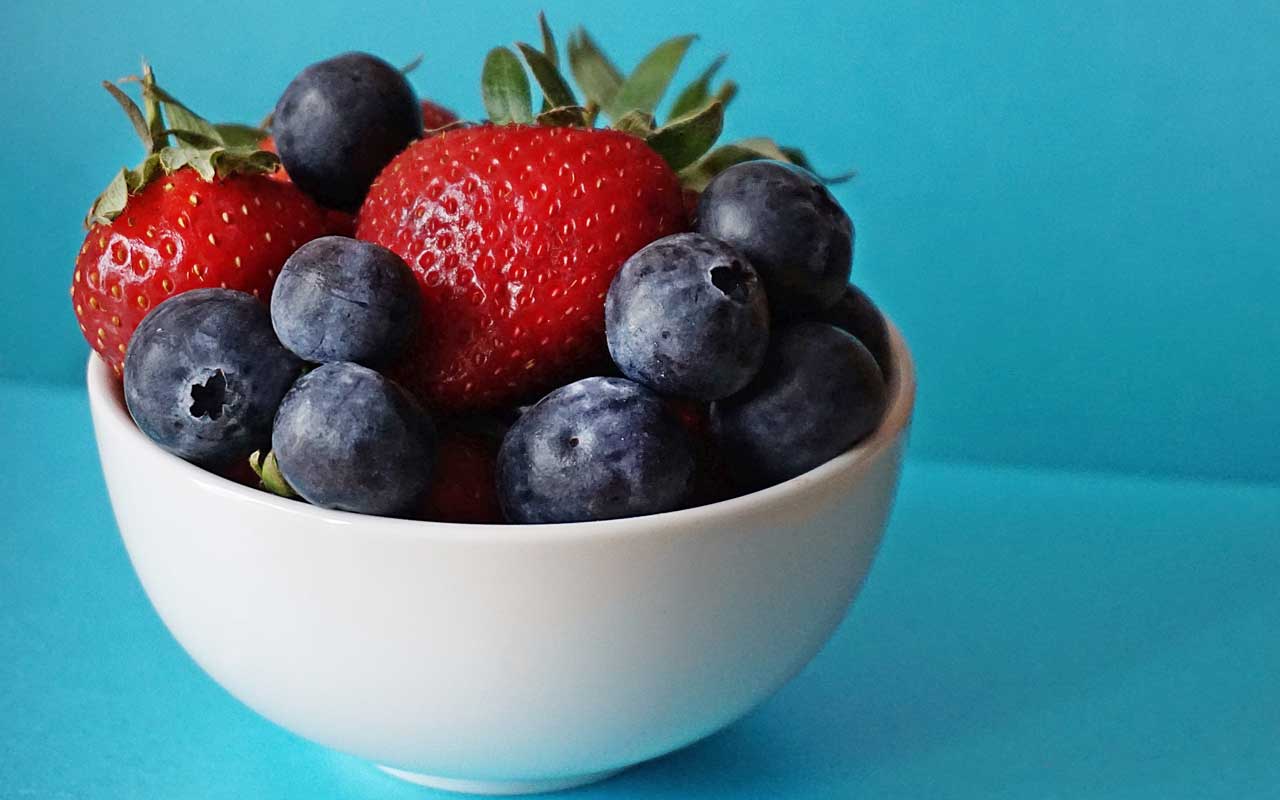
Five: More People Will Take Their Health Into Their Own Hands
Besides the problem with decisions being made based on scientifically invalid studies, people are waking to the fact that many foods harm memory.
The more I think about it, the more shocked I am that governments allow our grocery stores to be filled with garbage.
I believe in free markets, but ever since I started making sure I eat primarily foods that improve memory and making sure I get enough exercise, my concern for others has grown.
Sure, memory techniques worked for me when I ate horribly during university. I even performed reasonably well at a memory competition against Dave Farrow while completely hungover.
Although my performance underscores the value of mnemonics, I’m not proud that I let myself live that way.
And memory techniques work so much better now that I’ve been sober since 2015. In fact, I quit the day of that competition because I realized I had dishonored the ancient memory tradition.
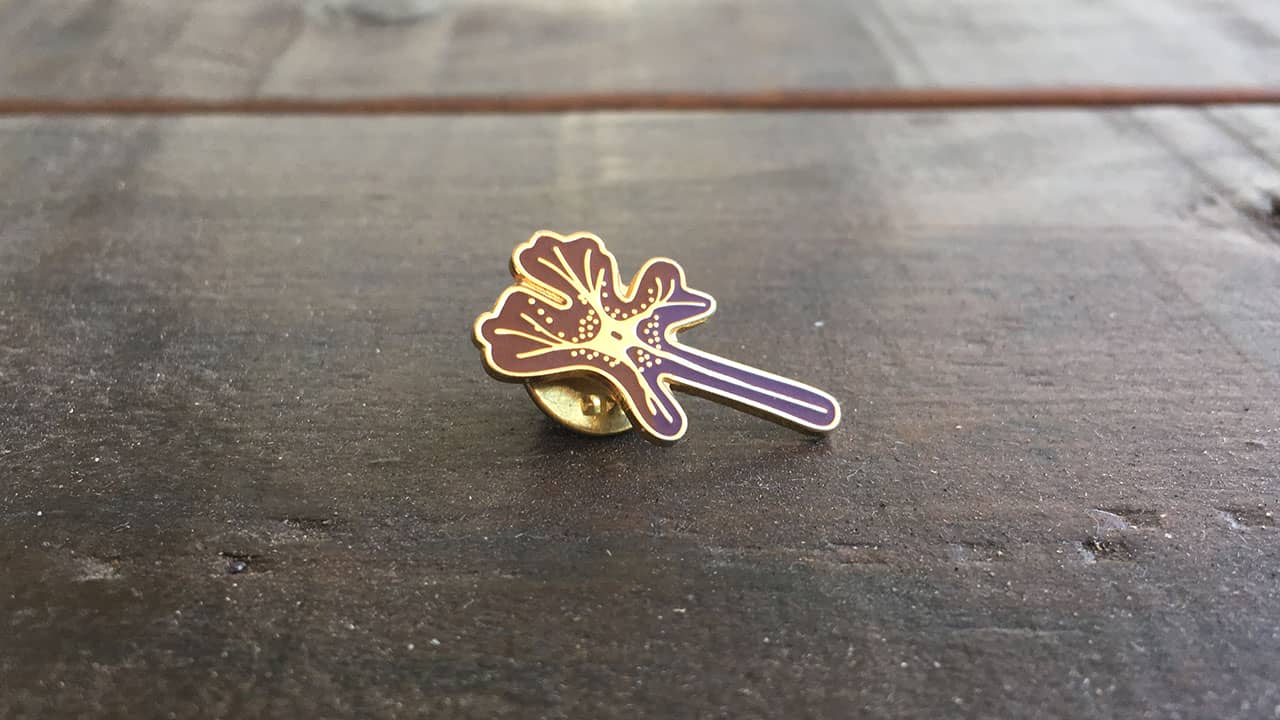
Since releasing The Victorious Mind, many people have told me their stories of cleaning up their diets and other consumption habits.
Six: Interest In Memory And Aging Will Explode
Giants paved the way for my entire career as a mnemonist and memory improvement teacher.
Harry Lorayne gave me my first dose of business advice. Tony Buzan awarded me the Warrior of the Mind Emblem, an honor only he could imagine creating so much impact.
Both of these incredible educators were proof of concept.
Lorayne continued doing magic tricks that required “heavy memory lifting” into his 90s.
When I met Buzan, he looked far younger than his age and was mentally sharp in the ways only consistent memory training enables.
Often people find me because they’re searching for those guys. Or for more information because of how inspiring they were because they put the proof in the pudding.
And as people continue to live longer lives, they will want to enjoy mental fitness and memory agility.
For reasons we’ll get into, I believe it will be easier than ever before for people to enjoy lifelong learning.
The core point is that ours is a time for aging. Even though mistakes will happen as medical science develops better treatments, aging can be much more delightful if more people take individual responsibility for their physical and mental health.
I’m so inspired by people like Matt Barclay who tackled the aftermath of his cardiac arrest by memorizing Psalms. And people like Nic Castle, who said no to PTSD. Castle’s accomplishments perfectly demonstrate the research showing how using memory techniques can fend off even the worst symptoms such conditions cause.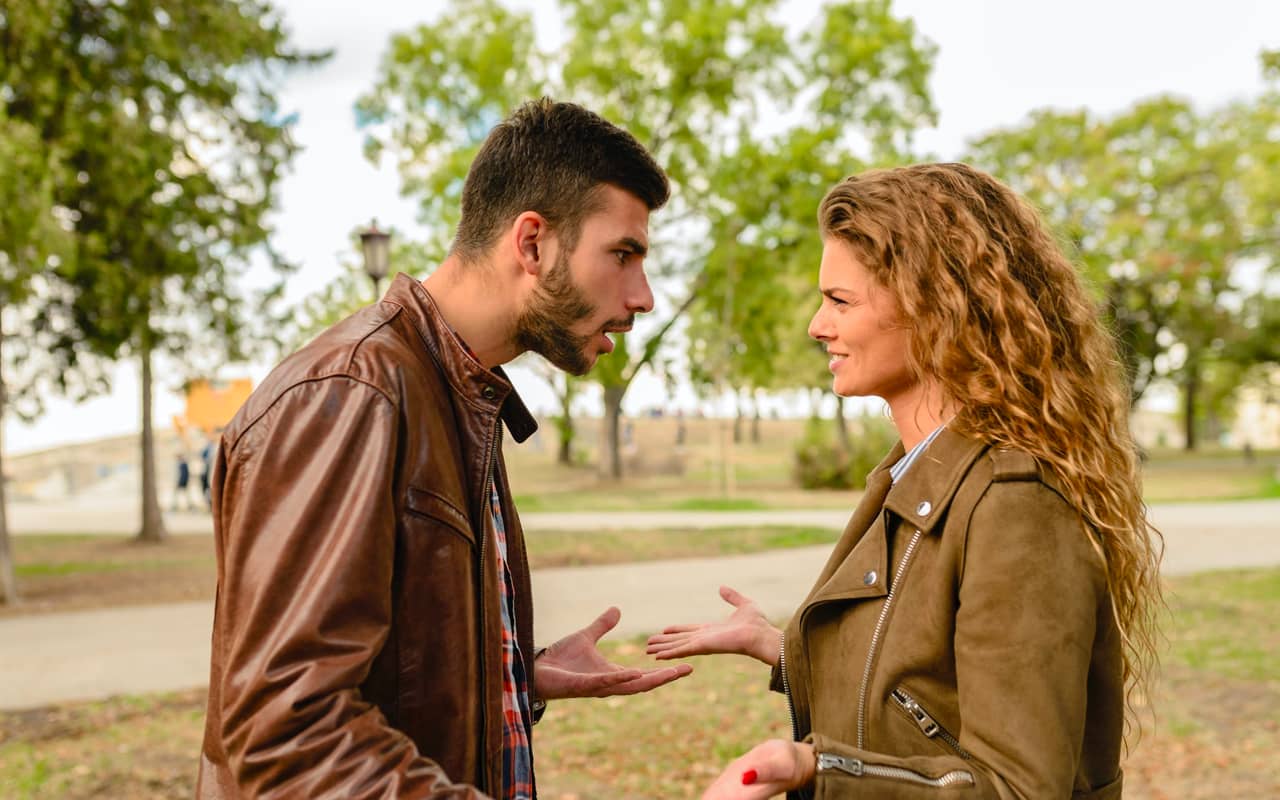
Seven: Cultural Conflict Will Continue To Impact Memory
No, I’m not going to get political.
Except to make one simple point:
Implicit memory helps explain why some people believe they are “correct” about this or that claim to territories and ideologies.
Implicit memory describes the type of memory that makes us learn things on autopilot. If you’ve ever said, “I can’t change, that’s just the way I am,” chances are you feel that way because automatic learning has you locked in a holding pattern.
This “dark side” of memory makes it difficult for people to consider other points of view, let alone change perspective.
I don’t pretend to have a solution. But I believe the explanation lies with memory.
Sadly, I see little change happening because establishing some kind of “blank slate” society where people can grow up without learning various behaviors and thought patterns would be inhumane.
There’s a terrible irony in this, something Nietzsche noticed when he wrote one of his most misinterpreted lines:
To look on the bright side, it’s possible that human memory will expand. Critical thinking and asking philosophical questions would naturally increase along with it.
I just can’t see us making substantial strides in 2025. If progress is possible, something one of my favorite mnemonists denies, it will likely remain incremental.
Eight: Microtubules Might Give Us Insight Into Consciousness & Memory
If slow progress is possible, one line of research that might speed things up has to do with Orchestrated objective reduction.
This controversial theory suggests that consciousness and memory arise from quantum processes that take place within the microtubules of your brain.
Other fun terms involved in this theory include “neuronal cytoskeleton.”
I predict that interest in this field will continue to grow. I personally hope the needed satellite experiment Roger Penrose has proposed will go forward.
For the full story, check out this review of the literature pertaining to this theory.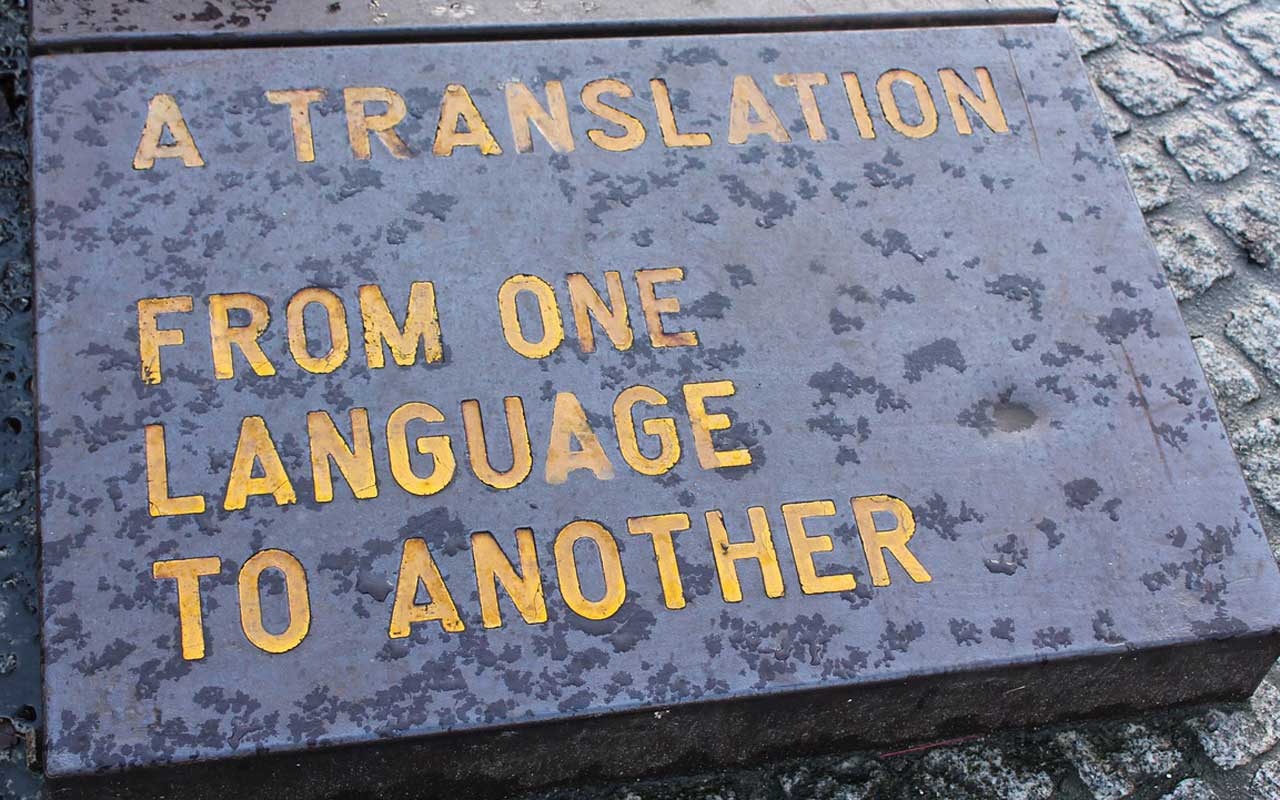
Nine: Language Learning Will Likely Suffer (And Learners Along With It)
When it comes to learning and memory trends, picking up a second language went through an explosion in popularity when the Internet went mainstream.
For the first time, you could easily rig Netflix to be a fantastic language learning software. Back when I was learning German so I could lecture in the language during my years as a Mercator Scholar, I had to get DVDs and make sure they had subtitles.
Often the translations were totally off. And overdubbing was rarely quality.
These days, however, you can get some decent language lessons using ChatGPT. But even if they’re decent, learning a new language requires human interaction.
People getting together, especially when it comes to the inconvenience of scheduling language learning lessons, seems to be going down.
Shortcuts are incredibly enticing, especially since skilled marketers can easily sway the mass market. The shockingly bad ways many language learning apps use bunk science in their marketing will probably increase in volume.
The positive side is that the technology can help you find great language learning teachers. And it’s amazing to me how easy it is to connect with people who have mastered the languages I’m passionate about.
Maybe an AI will make scheduling easier soon too. The point being is that people need to make sure they aren’t starving themselves of speaking and listening to natives in their target languages. The temptation to do so will increase, and there’s the strong risk that this will impoverish us all.
Ten: Polymaths Will Patch Together Powerful Learning Frameworks
One of the greatest trends I’ve seen comes to me from my most motivated students.
Take Brian Koscak, for example.
Shortly after I released my latest book, Phoenix Reborn, he sent me an AI-slide deck version of the book.
Albeit a short work, it took me a long time to write and record the audiobook version of this adaptation of Peter of Ravenna‘s legendary Memory Palace book.
Not only that, but Brian had an AI produce a kind of mind map of the book as well.
Now, I’m not going to lie.
Before my in-depth interviews with memory expert Lynne Kelly and AI consultant Andrew Mayne, I was feeling ambivalent about AI.
The disruption it has caused people like myself when it comes to getting found on the Internet has not been easy to navigate. And some of my favorite writers about learning, like Audrey Watters at Hack Education, seem beyond despondent.
But those two guests made me feel much more hopeful. And Brian’s engagement with my latest book even more so.
As Brian put it in an email, “I am into multi-modal learning.”
Me too, I have to admit.
Even better, Brian’s engagement reminded me that people can treat these tools as supplements for the books I personally hold so precious. They don’t have to be replacements. As he put it:
“I must admit that the greatest joy I have is reading. The written word is what is most important to me. Moreover, an adaptation of something old by adding your insight is what is of value, like your book.”
I can’t say for sure, but I’m optimistic that attitudes like these will reign supreme over the year to come. And beyond.
If that proves true, it means I’ll be able to remain old school in my interests and still find an audience who shares my passion for memory techniques.
And if you like old school learning experiences, feel free to get my free memory improvement course here:
It gives you four video lessons and three PDFs that guide you through developing your skills with Memory Palaces and mnemonic imagery.
My ultimate prediction is this:
Students who truly want to learn will face fewer obstacles than ever before.
If passionate teachers are too wordy, there will be summaries that can get them a version of the ideas that helps them dive back into the walls of text.
Or when a learner lacks discipline and can’t figure out how to chunk down a skill or topic, they’ll be able to reach into their pocket and get coaching.
The fundamental question that will remain is one of choice and access to real people.
With so many incredible resources and technologies available, some people will inevitably choose not to use them. Implicit memory will likely explain why they say no to the wealth of resources in front of many of them.
And access to real people is likely to be needed more than ever. That’s because no matter how fantastic learning tools become, other people’s experiences with using them will remain a premium way to shortcut your learning curve.
The market will see more options than ever before. This means that the role of the curator will only grow in importance. Even if AIs develop viewpoints based on experience, human input is highly likely to be valued.
At least, that’s what I’m counting on. How about you?
The post Learning and Memory Trends: My Predictions For 2025 appeared first on Magnetic Memory Method - How to Memorize With A Memory Palace.
20 حلقات
Learning and Memory Trends: My Predictions For 2025
Magnetic Memory Method – How to Memorize With A Memory Palace
Manage episode 451841222 series 3235856
 2024 is winding down as a wild year for learning and memory trends. Largely because it’s been marked by record levels of disruption from Artificial Intelligence technologies.
2024 is winding down as a wild year for learning and memory trends. Largely because it’s been marked by record levels of disruption from Artificial Intelligence technologies.
But have they really changed that much for learners in any practical sense?
And are they helping human memory?
If so, who is helped?
Who gets left behind?
I’m in touch regularly with learners who experiment wildly with learning technologies and report substantial results.
But I also hear from people who just wind up overwhelmed.
Then there are those who are innovating with new technologies, hoping to help more people by meeting them where they’re at.
Which is all too often with their attention buried in devices.
That’s why in this post I’m sharing my reflections from the past year and making a few predictions about what’s likely to happen in 2025.
Buckle up, learning fanatic. This is going to be an intense ride!
Learning And Memory Trends: My Predictions For 2025
The landscape of learning and memory seems to be developing rapidly.
However, memory science and neuroscience at large shows us that the human brain doesn’t evolve quite so fast.
But the fact that evolution moves slowly over generations, and that we might eventually adapt to our influx of technologies, doesn’t mean that our brains aren’t being rewired.
2024 saw the release of Jonathan Haidt’s The Anxious Generation. His argument is that we are rewiring the brain by exposing ourselves to too much online technology.
His prediction based on existing data is that if we don’t make some serious changes, mental illness is going to spike. Especially amongst young people.
Whereas Haidt focuses on young people overall, Richard Reeves wrote specifically about the effect on males in Of Boys and Men.
Although I’m not quite as anxious as these two well-acknowledged thinkers, I mention them upfront because their themes are important.
But by the end, you’ll find a bold prediction from me about how the current alarming trends might converge in ways that not only revolutionize how we learn.
They could well fundamentally alter how we experience consciousness itself. For the better.

One: Poor Sleep Will Continue to Erode Memory & Critical Thinking
We’ve known for a long time just how important sleep is for remembering information optimally.
A major 2024 study published in Science only underscores the facts.
The terms they use involve how sleep helps not only form memories. It also establishes and maintains “network stability” based on what another study calls “neuronal assemblies.”
Although the human brain is not a computer, there is a very real sense that the information we share flows between us like software code.
Critically, our lack of sleep ruins more than recall.
If we’re not well-rested, critical thinking often goes out the window. Part of the problem has to do with the maiming of working memory. You need to be able to juggle multiple details in real time when making decisions.
It’s also easier to be influenced by emotions instead of reason when you’re tired.
As these researchers have discovered, emotions and memory are tightly connected. So even emotional decisions that could be good if you were making them while well-rested stand a chance of being particularly poor when made while tired.
Worse, poorly rested people struggle to remember the details of how they arrived at their bad decisions. Even if they normally have “random access memory” to the very best critical thinking strategies.
My suggestion:
Instead of falling for the apps and add-ons claiming that blue light or some other hack make it okay to use devices while in bed, try this in 2025 instead.
Set a computer curfew and stick with it. Give yourself 2-3 hours of “digital fasting” before bedtime.
Both your memory and your thinking skills will thank you for it.
Two: Robot Created Learning Products Will Flood the Market
I’m not going to boost any particular company by citing specific examples.
But because I work online, advertisers target me with “automatic course creators” and “instant Ebook” artificial intelligence apps.
They tell me I can produce entire books in minutes and script flagship courses ready to be recorded with my video camera within an hour or less.
Used well, there is no doubt in my mind that experienced and ethical writers and course creators will become better than ever before.
Wordy people (like me) will be able to get help with how they describe things without having to pay expensive human editors. (Editors who often have no expertise in the topic area, so wind up cutting out crucial details students need to have in their deliberate practice of many skills).
But all kinds of people who really only care about identifying markets and selling products for cash and prizes will flood the market at a much faster pace. Because they have no scruples, they won’t worry about quality or student outcomes.
Fortunately, there are ancient principles that still work great: As I’ve been advising people for years through my Memory Training Consumer Awareness Guide, carpe diem, but always caveat emptor.
In case you don’t know any Latin, those terms mean “seize the day, but buyer beware.”
This leads us to my next prediction.
Three: Online Courses Will Continue to Help Learners Confuse Activity with Accomplishment
When it comes to learning and memory, there’s a strange fascination with “gamification.”
People seem to feel like they’ve learned more when animations explode on the screen. The sound of bells appeals to people when they complete a lesson.
Others like to collect points, coins or badges.
I get it. I don’t like it and find it thoroughly annoying – but I get it.
The problem is that I don’t find the evidence for the gamification of education compelling.
Although this systematic review of the literature finds cause for optimism, it also recognizes serious gaps in the literature.
I’d suggest that there are also gaps in how a lot of the scientific studies are conducted as well.
For example, this study of gamification in science education was based on a questionnaire.
The justification for making claims based on self-reporting is lacking. Nature has reported on how self-reporting like this winds up problematized by memory biases.
I don’t want to dwell on the negative, but validity problems plague so many memory statistics and studies.
My sad prediction is that people will continue “gamifying” online learning platforms with little or no evidence that any of the activities they’re injecting into the courses lead to accomplishment.
Feeling like you’ve had a great experience is great. But it doesn’t mean you’ve developed a skill in any meaningful way.
Four: Augmented Reality & Virtual Reality Will Remain Fringe Interests
I could be way off the mark here.
But it seems to me that the vast majority of humans want to be unencumbered by helmets and glasses.
For one thing, it’s hard to maintain situational awareness when you’re wearing a device – especially one that disrupts your attention with visual and audio notifications.
Perhaps such devices will increase your ability to monitor threats in the environment. But I think that’s misguided.
What if a connection goes bad? Or a bad guy has a scrambling device? Wouldn’t you rather that you were fully aware and ready to defend yourself instead?
Even in the relatively safe environment of one’s home, I predict that the vast majority of people will want to be instinctually free of devices that isolate or invade their ability to track environments in extreme ways.
Part of my thinking here is actually influenced by Jaron Lanier, a VR pioneer. He raises issues in Dawn of the New Everything that relate to situational awareness.
There are also uncanny valley effects that could pose challenges to our ability to learn in simulated environments.
Finally, there’s a memory champion who released a Memory Palace app. Strangely, his team wanted me to promote the product as an affiliate. But the creator would not appear on the Magnetic Memory Method Podcast to discuss it.
I can’t be sure, but it feels strongly to me that there was no desire to face the hard questions I have to ask about the efficacy of such an app. My criticism of digital amnesia and my traditional views on what constitutes a Memory Palace are well-known. I can’t think of any other reason why the interview never came about.
Five: More People Will Take Their Health Into Their Own Hands
Besides the problem with decisions being made based on scientifically invalid studies, people are waking to the fact that many foods harm memory.
The more I think about it, the more shocked I am that governments allow our grocery stores to be filled with garbage.
I believe in free markets, but ever since I started making sure I eat primarily foods that improve memory and making sure I get enough exercise, my concern for others has grown.
Sure, memory techniques worked for me when I ate horribly during university. I even performed reasonably well at a memory competition against Dave Farrow while completely hungover.
Although my performance underscores the value of mnemonics, I’m not proud that I let myself live that way.
And memory techniques work so much better now that I’ve been sober since 2015. In fact, I quit the day of that competition because I realized I had dishonored the ancient memory tradition.

Since releasing The Victorious Mind, many people have told me their stories of cleaning up their diets and other consumption habits.
Six: Interest In Memory And Aging Will Explode
Giants paved the way for my entire career as a mnemonist and memory improvement teacher.
Harry Lorayne gave me my first dose of business advice. Tony Buzan awarded me the Warrior of the Mind Emblem, an honor only he could imagine creating so much impact.
Both of these incredible educators were proof of concept.
Lorayne continued doing magic tricks that required “heavy memory lifting” into his 90s.
When I met Buzan, he looked far younger than his age and was mentally sharp in the ways only consistent memory training enables.
Often people find me because they’re searching for those guys. Or for more information because of how inspiring they were because they put the proof in the pudding.
And as people continue to live longer lives, they will want to enjoy mental fitness and memory agility.
For reasons we’ll get into, I believe it will be easier than ever before for people to enjoy lifelong learning.
The core point is that ours is a time for aging. Even though mistakes will happen as medical science develops better treatments, aging can be much more delightful if more people take individual responsibility for their physical and mental health.
I’m so inspired by people like Matt Barclay who tackled the aftermath of his cardiac arrest by memorizing Psalms. And people like Nic Castle, who said no to PTSD. Castle’s accomplishments perfectly demonstrate the research showing how using memory techniques can fend off even the worst symptoms such conditions cause.
Seven: Cultural Conflict Will Continue To Impact Memory
No, I’m not going to get political.
Except to make one simple point:
Implicit memory helps explain why some people believe they are “correct” about this or that claim to territories and ideologies.
Implicit memory describes the type of memory that makes us learn things on autopilot. If you’ve ever said, “I can’t change, that’s just the way I am,” chances are you feel that way because automatic learning has you locked in a holding pattern.
This “dark side” of memory makes it difficult for people to consider other points of view, let alone change perspective.
I don’t pretend to have a solution. But I believe the explanation lies with memory.
Sadly, I see little change happening because establishing some kind of “blank slate” society where people can grow up without learning various behaviors and thought patterns would be inhumane.
There’s a terrible irony in this, something Nietzsche noticed when he wrote one of his most misinterpreted lines:
To look on the bright side, it’s possible that human memory will expand. Critical thinking and asking philosophical questions would naturally increase along with it.
I just can’t see us making substantial strides in 2025. If progress is possible, something one of my favorite mnemonists denies, it will likely remain incremental.
Eight: Microtubules Might Give Us Insight Into Consciousness & Memory
If slow progress is possible, one line of research that might speed things up has to do with Orchestrated objective reduction.
This controversial theory suggests that consciousness and memory arise from quantum processes that take place within the microtubules of your brain.
Other fun terms involved in this theory include “neuronal cytoskeleton.”
I predict that interest in this field will continue to grow. I personally hope the needed satellite experiment Roger Penrose has proposed will go forward.
For the full story, check out this review of the literature pertaining to this theory.
Nine: Language Learning Will Likely Suffer (And Learners Along With It)
When it comes to learning and memory trends, picking up a second language went through an explosion in popularity when the Internet went mainstream.
For the first time, you could easily rig Netflix to be a fantastic language learning software. Back when I was learning German so I could lecture in the language during my years as a Mercator Scholar, I had to get DVDs and make sure they had subtitles.
Often the translations were totally off. And overdubbing was rarely quality.
These days, however, you can get some decent language lessons using ChatGPT. But even if they’re decent, learning a new language requires human interaction.
People getting together, especially when it comes to the inconvenience of scheduling language learning lessons, seems to be going down.
Shortcuts are incredibly enticing, especially since skilled marketers can easily sway the mass market. The shockingly bad ways many language learning apps use bunk science in their marketing will probably increase in volume.
The positive side is that the technology can help you find great language learning teachers. And it’s amazing to me how easy it is to connect with people who have mastered the languages I’m passionate about.
Maybe an AI will make scheduling easier soon too. The point being is that people need to make sure they aren’t starving themselves of speaking and listening to natives in their target languages. The temptation to do so will increase, and there’s the strong risk that this will impoverish us all.
Ten: Polymaths Will Patch Together Powerful Learning Frameworks
One of the greatest trends I’ve seen comes to me from my most motivated students.
Take Brian Koscak, for example.
Shortly after I released my latest book, Phoenix Reborn, he sent me an AI-slide deck version of the book.
Albeit a short work, it took me a long time to write and record the audiobook version of this adaptation of Peter of Ravenna‘s legendary Memory Palace book.
Not only that, but Brian had an AI produce a kind of mind map of the book as well.
Now, I’m not going to lie.
Before my in-depth interviews with memory expert Lynne Kelly and AI consultant Andrew Mayne, I was feeling ambivalent about AI.
The disruption it has caused people like myself when it comes to getting found on the Internet has not been easy to navigate. And some of my favorite writers about learning, like Audrey Watters at Hack Education, seem beyond despondent.
But those two guests made me feel much more hopeful. And Brian’s engagement with my latest book even more so.
As Brian put it in an email, “I am into multi-modal learning.”
Me too, I have to admit.
Even better, Brian’s engagement reminded me that people can treat these tools as supplements for the books I personally hold so precious. They don’t have to be replacements. As he put it:
“I must admit that the greatest joy I have is reading. The written word is what is most important to me. Moreover, an adaptation of something old by adding your insight is what is of value, like your book.”
I can’t say for sure, but I’m optimistic that attitudes like these will reign supreme over the year to come. And beyond.
If that proves true, it means I’ll be able to remain old school in my interests and still find an audience who shares my passion for memory techniques.
And if you like old school learning experiences, feel free to get my free memory improvement course here:
It gives you four video lessons and three PDFs that guide you through developing your skills with Memory Palaces and mnemonic imagery.
My ultimate prediction is this:
Students who truly want to learn will face fewer obstacles than ever before.
If passionate teachers are too wordy, there will be summaries that can get them a version of the ideas that helps them dive back into the walls of text.
Or when a learner lacks discipline and can’t figure out how to chunk down a skill or topic, they’ll be able to reach into their pocket and get coaching.
The fundamental question that will remain is one of choice and access to real people.
With so many incredible resources and technologies available, some people will inevitably choose not to use them. Implicit memory will likely explain why they say no to the wealth of resources in front of many of them.
And access to real people is likely to be needed more than ever. That’s because no matter how fantastic learning tools become, other people’s experiences with using them will remain a premium way to shortcut your learning curve.
The market will see more options than ever before. This means that the role of the curator will only grow in importance. Even if AIs develop viewpoints based on experience, human input is highly likely to be valued.
At least, that’s what I’m counting on. How about you?
The post Learning and Memory Trends: My Predictions For 2025 appeared first on Magnetic Memory Method - How to Memorize With A Memory Palace.
20 حلقات
Todos os episódios
×مرحبًا بك في مشغل أف ام!
يقوم برنامج مشغل أف أم بمسح الويب للحصول على بودكاست عالية الجودة لتستمتع بها الآن. إنه أفضل تطبيق بودكاست ويعمل على أجهزة اندرويد والأيفون والويب. قم بالتسجيل لمزامنة الاشتراكات عبر الأجهزة.






